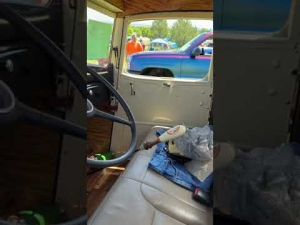Everything You Need To Know Before You Buy Your First Classic Car
There are few joys like a well-cared-for classic car. Everyone loves to see a rust-to-riches restoration story or a mint condition antique. There is a lot more to classic car ownership than changing the oil. Buying and maintaining a car that’s more than two decades old is a labor of love.
| Robert Alexander via Getty Images
A lot of research goes into finding the right classic
The biggest mistake classic car shoppers make is not doing enough research. Many factors could make it hard to live with a dream car. No one wants to come down from the excitement of buying a rare or exotic car to regret their purchase. It’s worth putting in the leg work to avoid a disappointing buying experience.
Each classic car presents its own unique set of challenges and unforeseen issues to owners. The availability of parts can vary wildly from one model to the next. Looking up the price and availability of a few critical parts can lend insight. This informal and practical research saves a lot of frustration. Understanding the fuel demands and cost of maintenance is important for owner satisfaction too.
One of the best resources a classic car lover can tap is other enthusiasts. Local car clubs and international model-specific forums provide a wealth of practical information and real-time support. Information on every aspect of ownership from professional inspection companies, shops that cater to specific classics, and insurance agent referrals can take the guesswork out of buying something special.
Specialty mechanics, complicated insurance, and professional inspections

RELATED: Why Are Classic Fiat 500s Worth More Than Some Modern Ones?
Repairing a classic, especially a rare model, isn’t as easy as taking a 3 year old car to the local dealership. Owners need to find a mechanic with the skills and experience relevant to their car before they commit to buying. This is where local car groups can be an invaluable resource to classic car drivers.
Insurance rates for older cars can be somewhat unpredictable. Specialty insurance providers and agents are the best source for information on rates based on specific models. Buyers can expect higher rates as rare cars present higher liability to insurers.
When buying a classic car, even more diligence is needed. A professional inspection is a must before money exchanges hands. Every car needs to be meticulously checked for structural damage and wear as well as general road readiness. This is more than a matter of protecting an investment. It’s a matter of safety.
A classic car needs to be a true passion project

RELATED: Classic Cars Aren’t as Powerful as You Remember
In the age of buying cars from vending machines, buying a classic is a unique experience. Every step of researching, shopping for, buying, and owning a classic car represents hours of emotional labor. The experience can be gratifying and even profitable, but it requires passion. Considering the cost of maintaining a classic is about more than balancing the budget. Classic cars are pieces of history. It takes an investment of more than just cash to keep moving art on the road.
The post Everything You Need To Know Before You Buy Your First Classic Car appeared first on MotorBiscuit.






